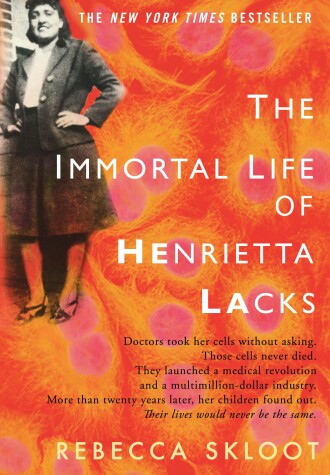Reviewed by gmcgregor on
Well, "donor" might not have been the correct word to use up there, because Henrietta didn't knowingly "donate" anything. Instead, the doctors working on her took the samples without bothering to ask her permission, which was standard practice at the time. And the ethics of this sort of thing, the evolution of informed consent, is a key part of the book, which Skloot weaves around the story of the Lacks family. How fast medical science has grown, and how slow the field's understanding of or willingness to comply with what is right has been in trying to keep up with it. In a world where all you need to get a basic understanding of your genetic picture is $100, to spit in a tube, and 6-8 weeks for processing, what kind of protections should be around that data? We likely still don't know the full implications of something like that being hacked or leaked.
This book has become a science classic already, and it's easy to see why: Skloot is a talented storyteller, and for most of the book's run does an admirable job of keeping her three pieces (Henrietta herself, the HeLa cells/medical ethics, and the story of the Lacks children) in balance. She does great work in digging up what little information there is about Henrietta's short life, mostly through the connections she managed to build with the children Lacks left behind. I've got some grounding in science research from my days as a psychology student, and I know about some of the more egregious bullshit doctors used to get up to (especially with the poor and people of color), but even I was shocked at how lax regulations on human research used to be and how deeply the focus was on getting data at any costs. I was chilled by the story she recounts of a researcher, who the Lacks children believe was untruthful with them when she encountered them years before the book was written, expressing her longing to be able to get material (i.e. blood) from those same people to perform tests.
The reason I haven't rated this more highly, then, is that it starts to drag at the end, becoming more a story about how the story was reported, which tends to bother me unless it's in small doses. It's clearly rooted in a deep, real fondness for Deborah Lacks, one of her primary sources, and a desire to do justice to her story too...but for me, it didn't have the power of the larger narrative and didn't quite work. That being said, this is a story everyone should read and I definitely recommend it to a wide audience.
Reading updates
- Started reading
- 21 March, 2018: Finished reading
- 21 March, 2018: Reviewed
